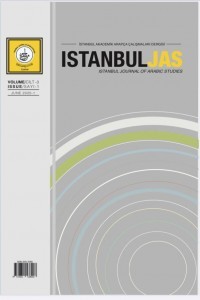The Pre-Islamic King in the Books of Proverbs
The ancient Arab proverbs are an important source of ancient Arabic literature. they serve as a mirror that reflects the customs, traditions, and morals of the ancient Arabs and their perspective on life in general. At an early stage the Arabs gathered their proverbs and wrote them down in special books, called "Books of Proverbs". This study discusses the proverbs related to the pre-Islamic king in the ancient cassical Arabic proverbs books that were written during the first five centuries AH. In these books The writers attributed a good number of the proverbs to kings from the pre-Islamic era. There are proverbs that were first spoken at the councils of the kings of the pre-Islamic era, in other proverbs these kings' names were mentioned, and some proverbs referred to and related to them. In this article, we will mention those proverbs related to the kings of the pre-Islamic era and analyze them to present a clear image of the pre-Islamic king in the ancient proverbs books.
Anahtar Kelimeler:
proverb, , king, , proverbs, , pre-Islamic era, , image of the ruler
The Pre-Islamic King in the Books of Proverbs
The ancient Arab proverbs are an important source of ancient Arabic literature. They serve as a mirror that reflects the customs, traditions, and morals of the ancient Arabs and their perspective of life in general. At an early stage the Arabs gathered their proverbs and wrote them down in special books, called "Books of Proverbs". This study discusses the proverbs related to the pre-Islamic king in the ancient cassical Arabic proverbs books that were written during the first five centuries AH. In these books The writers attributed a good number of the proverbs to kings from the pre-Islamic era. There are proverbs that were first spoken at the councils of the kings of the pre-Islamic era, in other proverbs these kings' names were mentioned, and some proverbs referred to and related to them. In this article, we will mention those proverbs related to the kings of the pre-Islamic era and analyze them to present a clear image of the pre-Islamic king in the ancient proverbs books.
Keywords:
Proverb, king, proverbs, pre-Islamic era, image of the ruler,
___
- - ابن سلاّم، أبو عبيد القاسم، الأمثال، ت: عبد المجيد قطامش، دمشق، دار المأمون للتراث، 1400 هـ-1980 م.
- - ابن سلمة، المفضل، الفاخر، ت: عبد العليم الطحاوي، م: محمد علي النجار، القاهرة، دار إحياء الكتب العربية، عيسى البابي الحلبي، 1380 هـ.
- - الأصفهاني، حمزة بن الحسن، سوائر الأمثال على وزن أفعل، ت: فهمي سعد، عالم الكتب، 1988م.
- - التوحيدي، أبو حيان البصائر والذخائر، ت: وداد القاضي، بيروت، دار صادر، 1408 هـ-1988م.
- - الحطاب، محمد جميل، "المجالس الأدبية عند العرب" آفاق ثقافية، وزارة الثقافة-دمشق، العدد 8، 2018.
- - خلف، عبد الله، "الأمثال العربية"، البيان الكويتية، 489، (2011). ص: 48-51.
- - الزمخشري، أبو القاسم محمود جار الله، المستقصى في أمثال العرب، بيروت، دار الكتب العلمية، 1987م.
- - سالم، نبيلة إبراهيم، "المثل الشعبي"، مجلة الثقافة (لمحمد فريد أبو حديد)، 65، (1964)، ص 10-13.
- - الضبي، المفضل، أمثال العرب، ت: إحسان عباس، بيروت، دار الرائد العربي، 1403هـ/1983م.
- - عابدين، عبـد المجيد، الأمثـال فـي النثـر العربـي القديم مـع مقارنتهـا بنظائرهـا فـي الآداب الـسامية الأخـرى، دار مصر للطباعة، ١٩٨٩م.
- - العسكري، أبو هلال الحسن بن عبد الله، جمهرة الأمثال، بيروت، دار الفكر.
- - العقاد، عباس محمود، "أفعالهم من أمثالهم"، الرسالة، 485، (1942)، ص: 973-975.
- - علي، جواد، المفصل في تاريخ العرب، بيروت، دار العلم للملايين، 1969.
- - قطامش، عبد المجيد، الأمثال العربية دراسة تاريخية تحليلية، دمشق، دار الفكر.
- - الميداني، أبو الفضل أحمد بن محمد، مجمع الأمثال، محمد محيي الدين عبد الحميد، بيروت، دار المعرفة.
- - ناصيف، جورج، "الأمثال: من الفحص إلى المساءلة"، الآداب، 1-3، (1987)، ص: 25-27.
- - الهاشمي، زيد بن عبد الله بن مسعود أبو الخير، الأمثال، دمشق، دار سعد الدين، 1423 هـ.
- - اليافي، عبد الكريم، "الأمثال: مكانتها، حقيقتها البلاغية، منشؤها، صلتها بالحياة"، التراث العربي، 18، (1985)، ص: 7-14.
- ISSN: 2651-5385
- Yayın Aralığı: Yılda 2 Sayı
- Başlangıç: 2018
- Yayıncı: İbrahim ŞABAN
